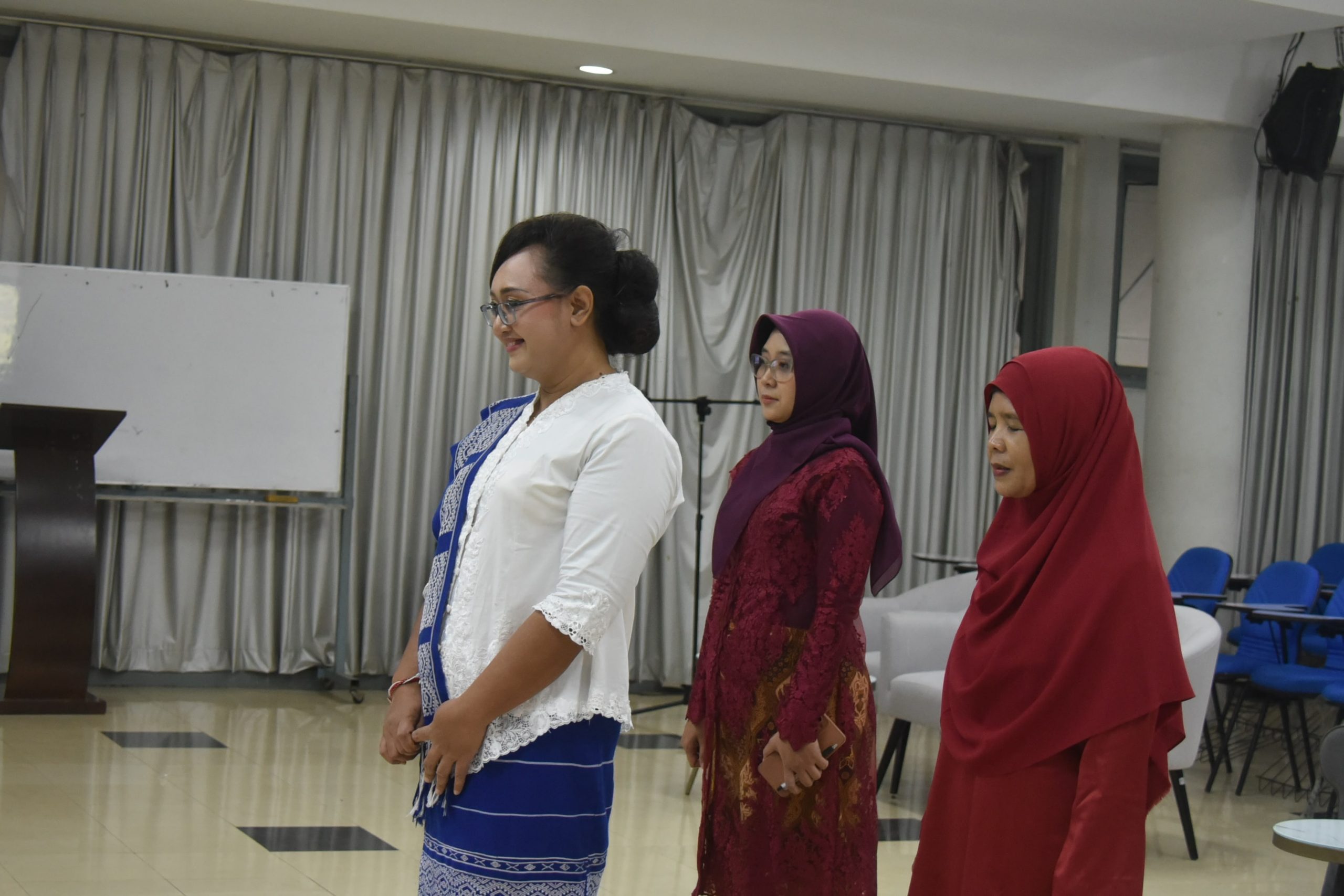The Faculty of Public Health (FPH) Universitas Indonesia (UI) reaffirmed its commitment to producing outstanding scientists through the Public Doctoral Promotion Open Session held at the Auditorium of Building G, FPH UI. The doctoral candidate, Dewa Ayu Putu Mariana Kencanawati, presented her dissertation titled “A Socio-Culturally Based Community Empowerment Model to Increase the Use of Insecticide-Treated Nets Among Pregnant Women in Kodi Utara Subdistrict, Southwest Sumba Regency.” The session was chaired by Prof. Dr. dra. Dewi Susanna, M.Kes., as Chair of the Session and Examination Board. The doctoral candidate, from the Doctoral Program in Public Health Sciences, successfully defended her dissertation and was awarded her doctorate with cum laude honors and a GPA of 3.92.
Malaria remains a major public health issue globally, including in Indonesia. In 2023, Indonesia accounted for approximately 88% of the estimated malaria deaths in the Southeast Asia region (WHO, 2024). Nationally, there were 418,546 reported malaria cases with an Annual Parasite Incidence (API) of 1.5 per 1,000 population. Most malaria cases in Indonesia originate from Papua, Penajam Paser Utara District in Kalimantan, and East Nusa Tenggara (NTT) Province. “Among these regions, Sumba Island in NTT stands out as a major contributor, with Southwest Sumba Regency (SBD) recording the highest number of cases in the province—2,384 cases (API: 6.54 per 100 population),” explained Dewa Ayu. Of those, 50.2% were caused by Plasmodium falciparum, the deadliest malaria parasite.
Given this heavy disease burden, Kodi Utara Subdistrict in SBD has become a focus area, particularly due to the low use of insecticide-treated nets (ITNs) among vulnerable groups such as pregnant women. Yet, the use of ITNs is a simple and effective intervention to prevent malaria transmission, especially in high-transmission areas like Kodi Utara.
In response, Dewa Ayu designed her dissertation to develop a socio-culturally based community empowerment model. Her approach went beyond formal education, rooted in local wisdom and social dynamics. The model engaged community members at every level—from subdistrict, village, to family—as active agents of change in supporting integrated malaria services for pregnant women.
This study used a mixed-method approach with an exploratory sequential design and involved 144 pregnant women divided into control and intervention groups. The findings showed that after two months of intervention, there was a 21.13% increase in pregnant women’s knowledge and a 20.83% improvement in correct ITN usage in the intervention group compared to the control group. However, changes in attitudes toward ITN use were not statistically significant (p-value: 0.294).
These findings affirm that the effectiveness of health interventions is not solely determined by the availability of tools or infrastructure but is deeply influenced by the social and cultural context of the target community. In this case, program success hinged on the active involvement of the community, facilitated through approaches that respected local social structures and values.
The empowerment model adopted a Participatory Rural Appraisal (PRA) approach. It consists of three key components: a facilitator team at the subdistrict level, an implementation team at the village level (including supervisors and family companions), and families acting as direct supervisors of ITN use among pregnant women. Interestingly, the dissertation also found that mothers or mothers-in-law played a significant role in pregnancy-related decision-making. Despite the traditional orientation of the local community, there was no negative perception of ITN usage.
As a recommendation, the doctoral candidate emphasized the importance of cross-sector and community-wide involvement in malaria prevention strategies, especially for pregnant women, with careful consideration of local socio-cultural contexts. She also proposed technical regulatory guidelines for ITN education—especially in connection with ITN distribution within integrated malaria services under the Maternal and Child Health (MCH) program in Southwest Sumba Regency.
Dewa Ayu Putu Mariana Kencanawati is the 15th graduate of the FPH UI Doctoral Program in Public Health Sciences in 2025. She is the 354th graduate of the program and the 465th doctoral graduate from FPH UI. Her dissertation was supervised by Prof. Dr. dra. Evi Martha, M.Kes. (promoter), and Prof. Dr. dr. Sabarinah, M.Sc. along with Ermi Ndoen, Ph.D. (co-promoters). The doctoral examination board included Dr. Purwadi Soriadiredja, M.Hum.; Dr. drs. Lukman Hakim, S.K.M., S.H., M.M.; Dr. Indra Supradewi, S.ST., M.K.M.; and Dr. Bringiwatty Batbual, S.Kep., Ns., M.Sc. (DFD)

